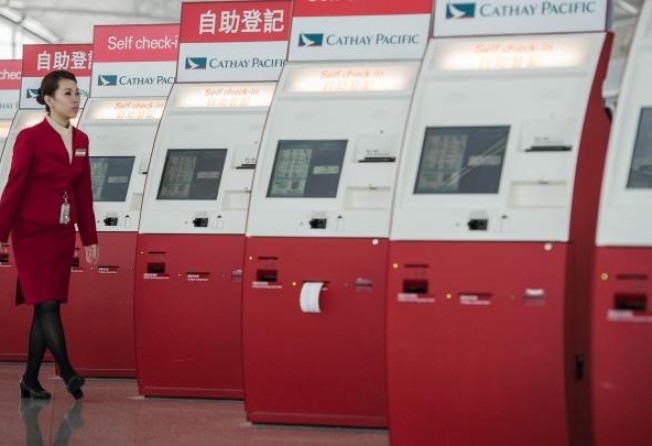Asia's top airlines should keep from charging for ancillary services
It would be detrimental to the good names of Asia's top airlines to follow an industry trend of charging for services such as extra legroom

How long can Asia's leading airlines, including Cathay Pacific Airways and Singapore Airlines, resist the lucrative lure of "unbundling" their services and charging separately for each item?
For Cathay, which lost HK$935 million in the first half of this year, seeing other airlines cashing in and charging passengers for paying by credit card, checking in baggage, carrying hand baggage on board, choosing a seat with extra legroom, and enjoying food, drink and entertainment, it must be tempting to follow.
But it would be a big mistake to throw away the loyalty of regular passengers and its premium reputation to go after the nickels and dimes of charging for everything.
Airline bean counters might disagree. The so-called airline ancillary-fee business is now a big bucks industry that rose 66 per cent in the last two years and was worth US$22.6 billion last year, with United Airlines leading the way and collecting a whopping US$5.17 billion in extra charges.
So when will Asia join in the game? A strange note confronts anyone making a booking on Cathay over the internet. Even if you book flights only on Cathay, you will be warned: "Additional airline fees for baggage may apply. The baggage policies of the following carrier apply to this itinerary and are available on the following webpage. Cathay Pacific."
Asked whether this was a warning that fees for baggage might be on the way, Cathay replied: "As a premium international carrier, we offer a free baggage allowance for our customers. There is an extra charge for baggage in excess of the allowance.
"The line you referred to on our website is for passengers who might travel on multiple airlines. With the introduction of an IATA Resolution since April 1, 2011, airlines may apply different baggage allowances and charges for excess. This alert is aimed to provide customers with full details of all applicable baggage charges and so they can calculate the total cost of transportation and make an informed purchase. In certain jurisdictions such as the US, this type of notice is a regulatory requirement."
So that's a "No", although not quite as resounding as the horrified "No, never" with which Cathay replied to suggestions that it might start charging for meals when I interviewed then chief executive Tony Tyler a couple of years ago.
In the US and among European budget airlines, charging extra fees is not merely a big business, but is the difference between profits or losses for many of them. United, for example, made operating profits of US$1.82 billion last year and net profits of US$840 million, much less than its ancillary earnings.
IdeaWorksCompany, a consultancy in airline ancillary revenue, and Amadeus, a travel technology and transaction company for the global travel industry, studied the financial filings of 108 airlines.
IdeaWorksCompany pointed to some innovative ancillary services, such as KLM giving passengers the choice to order quality meals, one called Bella Italia, for €12 to €15 (HK$115 to HK$144), and United offering a MileagePlus Visa Explorer card that allowed a free checked bag, admission to lounges and bonus miles.
It is not as if Asian airlines are sitting still and not aiming to maximise revenues. Most practise highly active yield management. Last month, I checked prices on Air New Zealand and found one that was attractive. But I needed two seats, so I logged out and in again, by which time the price had gone up by US$400 per person. That's not small change.
Cathay has a bewildering variety of prices even in economy class, which vary by when you want to travel, how long you want to stay and how far ahead you book. Take a Hong Kong-London round trip as an example. For next month the airline advertises a price as low as HK$6,250 plus tax of HK$3,975, or you can pay as high as HK$27,420 to HK$32,450 plus tax for an economy flex ticket, which gives you maximum flexibility with dates or flights and costs you only HK$250 if you decide not to go at all.
The higher economy flex fare is almost twice as expensive as Cathay's new vaunted premium economy class fare. Do they think passengers are stupid?
If Cathay or Singapore Airlines start charging for baggage, meals, drinks and so on, they risk reducing themselves to the level of the US carriers. That's a fall from five stars to three stars, according to Skytrax ranking, but would be an almighty crash as far as passengers and their own reputations go.